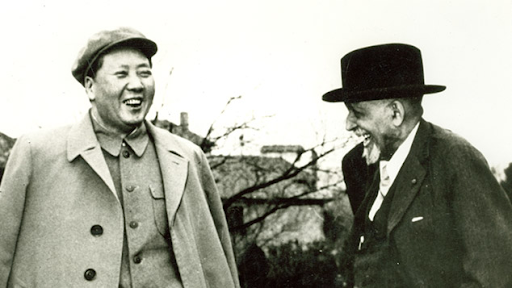
In March of 1928, W.E.B. DuBois published a short essay attacking the character of Robert E. Lee in a publication created by DuBois called The Crisis. This magazine was also the official publication of the NAACP, which was also co-founded by DuBois, and (according to their November 1910 premier issue) had the expressed goal of setting forth “those facts and arguments which show the danger of race prejudice, particularly as manifested today toward colored people.”
DuBois starts off his essay by noting how Robert E. Lee’s memory is celebrated every January 19th (Lee’s birthday), then quickly descends into questioning and attacking the moral character of Lee:
“…Robert E. Lee led a bloody war to perpetuate slavery. Copperheads like The New York Times may magisterially declare, ’Of course, he never fought for slavery.’ Well, for what did he fight? State rights? Nonsense. The South cared only for State Rights as a weapon to defend slavery.”
In the first place, Robert E. Lee did not lead the Confederate army to perpetuate slavery. Slavery was offered up to the South through the Corwin Amendment, the Crittenden-Johnson Resolution explicitly stated that the North was fighting to “preserve the Union” – not to end slavery, and Lincoln’s own Emancipation Proclamation even gave the South 100 days to return into the Union and keep slavery.
Yankee apologists like to dismiss the concept of States’ Rights as the Southern attempt to explain away the issues of slavery as the cause for the war. The reality is that yes, slavery was an issue that caused SECESSION, but not THE WAR. Slavery was an issue that multiple states brought up in their ordinances of secession, but none of these states were declaring war on the Union nor desired to do so. Jefferson Davis even explicitly stated in his inaugural address that “the present Confederacy has…no interest or passion to invade the rights of others, [and we are] anxious to cultivate peace and commerce with all nations, if we may not hope to avoid war, we may at least expect that posterity will acquit us of having needlessly engaged in it.”
The true reason war broke out is that there was an invasion of the South by the North. DuBois got this partially right when he wrote:
“No. People do not go to war for abstract theories of government. They fight for property and privilege, and that was what Virginia fought for in the Civil War.”
While one could argue that most wars are actually about abstract theories of government, the larger importance of this quote is that DuBois correctly stated that property – more specifically that which had been invaded by Yankees – was a major part of what Virginians were fighting for. In fact Virginia only seceded after Lincoln called for volunteers to invade the South.
DuBois then goes into a full-blown, microaggressive rant about his feelings towards Robert E. Lee:
“And Lee followed Virginia. He followed Virginia not because he particularly loved slavery (although he certainly did not hate it), but because he did not have the moral courage to stand against his family and his clan. Lee hesitated and hung his head in shame, because he was asked to lead armies against human progress and Christian decency and did not dare refuse. He surrendered not to Grant, but to Negro Emancipation.”
Not only did Lee himself write in 1856 that slavery was a “a moral & political evil”, but his own wife’s family had taught generations of enslaved people how to read and write on Arlington plantation. It is also absurd of DuBois to charge Lee with not having moral courage to stand against his own family in Virginia. DuBois never served in any military capacity, and never did anything in his life that required any degree of moral or physical courage. To assert that the North represented “human progress and Christian decency” proves very clearly that DuBois had no goal of being objective here. All one needs to do is compare Robert E. Lee’s “General Order 73” with the general conduct and character of William Tecumseh Sherman’s troops during their March to the Sea to really understand which side represented Christian decency.
DuBois wraps up his essay with one last attack on Lee and the South, writing:
[on the South’s leaders] “…their courage will be physical and not moral. That their leadership will be weak compliance with public opinion and never costly and unswerving revolt for justice and right. It is ridiculous to seek to excuse Robert Lee as the most formidable agency this nation ever raised to make 4 million human beings goods instead of men. Either he knew what slavery meant when he helped maim and murder thousands in its defense, or he did not. If he did not he was a fool. If he did, Robert Lee was a traitor and a rebel – not indeed to his country, but to humanity and humanity’s God.”This is the perfect quote to encapsulate the selective moral outrage of DuBois. Lee should be forgotten because did not do enough, in DuBois’ opinion, to oppose slavery. The great irony is that DuBois was a lifelong communist who praised crackpot dictators like Mao Zedong, a man that mass murdered tens of millions of people. Studying the career of DuBois also shows us that ideologies like Fascism and Nazism are incorrectly labeled “right wing” by today’s intellectuals. DuBois himself actually praised Nazi Germany in 1936, writing that “Germany today is, next to Russia, the greatest exemplar of Marxian socialism in the world.” DuBois was even so interested in the Nazi movement that his magazine actually featured swastikas at one point in the 1920s, and he also wrote that the creation of a dictatorship had been absolutely necessary to get the German state in order. Since DuBois had fine things to say about mass murderers and anti-semites, maybe he should be cancelled next?





